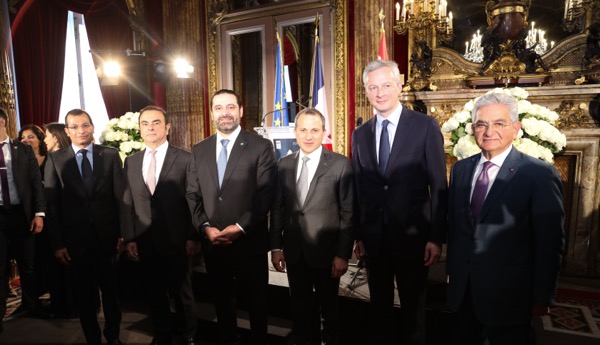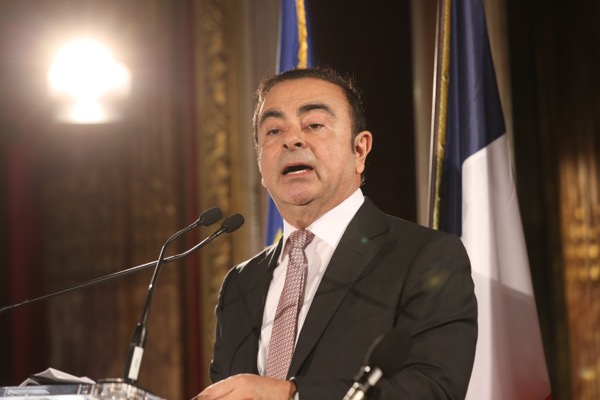
BEIRUT: Prime Minister Saad Hariri called for reforms in his speech at the Lebanese Diaspora Energy Conference in Paris Saturday .
The LDE conferences aim at bringing together Lebanese around the world . One was already held in Ivory Coast earlier this year. The next conference will be held on May 10 to May 12 later this year.
“Lebanon can continue as before, with outdated laws and no reforms,” Hariri said, “we need to improve the labor market, implement real reforms to fight corruption and create jobs.”
He said that Lebanese should threaten the candidates for the parliamentary elections with reforms. “If I don’t deliver [reforms] then don’t vote for me.”
He expressed his thanks to the French government over the outcome of the CEDRE donor conference. “But the most important thing for me is reform, reform, and reform.” He said that while the Syrian crisis did affect the Lebanese government, the impact would have been less burdensome if there were reforms. “We must not wait every time to reach a problem or an economic collapse and then ask for funds from countries. We have to reform and then if there is an economic crisis beyond our control, then we ask for conferences,”he said.
He said these conferences and the diaspora are helping the government spread diplomacy. You are the main force and our weapon. There might be political differences, but you need to stay united alongside Lebanon,” Hariri added.
“I have prepared a bill to amend the name of the Foreign Ministry to the Foreign Affairs, Diaspora and International Cooperation Ministry,” he said, ostensibly as a way to affirm the Lebanese identity of expatriates instead of alienating it.

I am proud of people like Carlos Ghosn who raised Lebanon’s name all over the world. The reason for Carlos Ghosn’s success is that he worked and did reforms. He took charge of a company that was suffering from problems, and we have a country with problems where we cannot continue working without reforms.
The main reason behind our ability to accomplish these achievements in Lebanon, especially after the election of President Michel Aoun, is the consensus in the country. Small political differences will continue but we agree on all the essential issues, and that the interest of the Lebanese citizen comes before any other matter. This is the most important thing and we should preserve this consensus because experience proved that whenever we disagree the country pays the price.
Conference boycotted
However, both Finance minister Ali Hasan Khalil and and Public Works and Transport Youssef Fenianos boycotted the conference, which wa salso attended by FM Gebran Bassil
“We are against conferences that try to influence people or political parties in the [parliament] elections, and we are against exploiting expatriates in the election campaign,” Fenianos was quoted saying by the NNA.
Khalil represents Speaker Nabih Berri’s Amal movement in the cabinet while Fenianos represents Suleiman Franjieh’s Marada Movement
CEDRE
International donors convened in Paris on April 6 and pledged $10.2 billion in loans and $860 million in grants to support the ailing Lebanese economy in exchange for reforms. Lebanon is currently the third most indebted country in the world, with a public debt estimated at 150 percent of GDP, or $79 billion. Lebanon currently ranks 143 out of 180 in the 2017 Corruption Perceptions Index released by Transparency International in February 2018, so if it does not reform its economy the pledges made at CEDRE might remain mere words.

Leave a Reply
You must be logged in to post a comment.